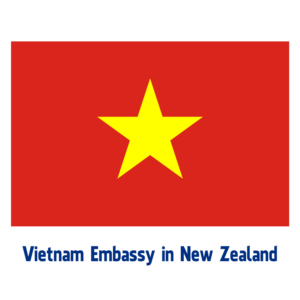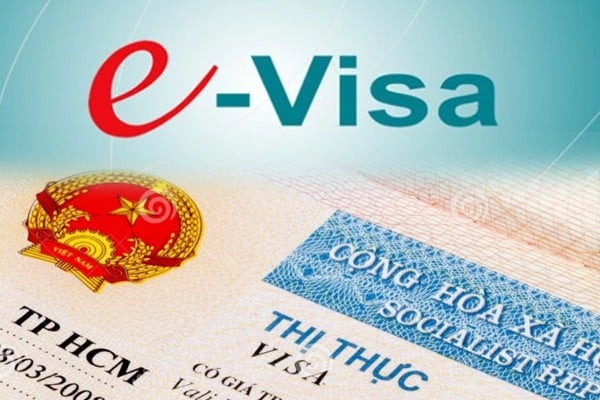
How to Apply Vietnam Visa from Belgium: Step-by-Step Guide and Tips
Discover the straightforward process of how to apply Vietnam visa from Belgium with our comprehensive guide. Navigating the requirements for Belgian citizens seeking entry to Vietnam can seem daunting, but with the right information, it’s a manageable and even exciting step toward your travel plans. Whether you’re drawn to Vietnam’s stunning landscapes, rich culture, or business opportunities, understanding how to apply Vietnam visa from Belgium ensures a smooth journey from preparation to approval.
Introduction: Obtaining a Vietnam Visa from Belgium
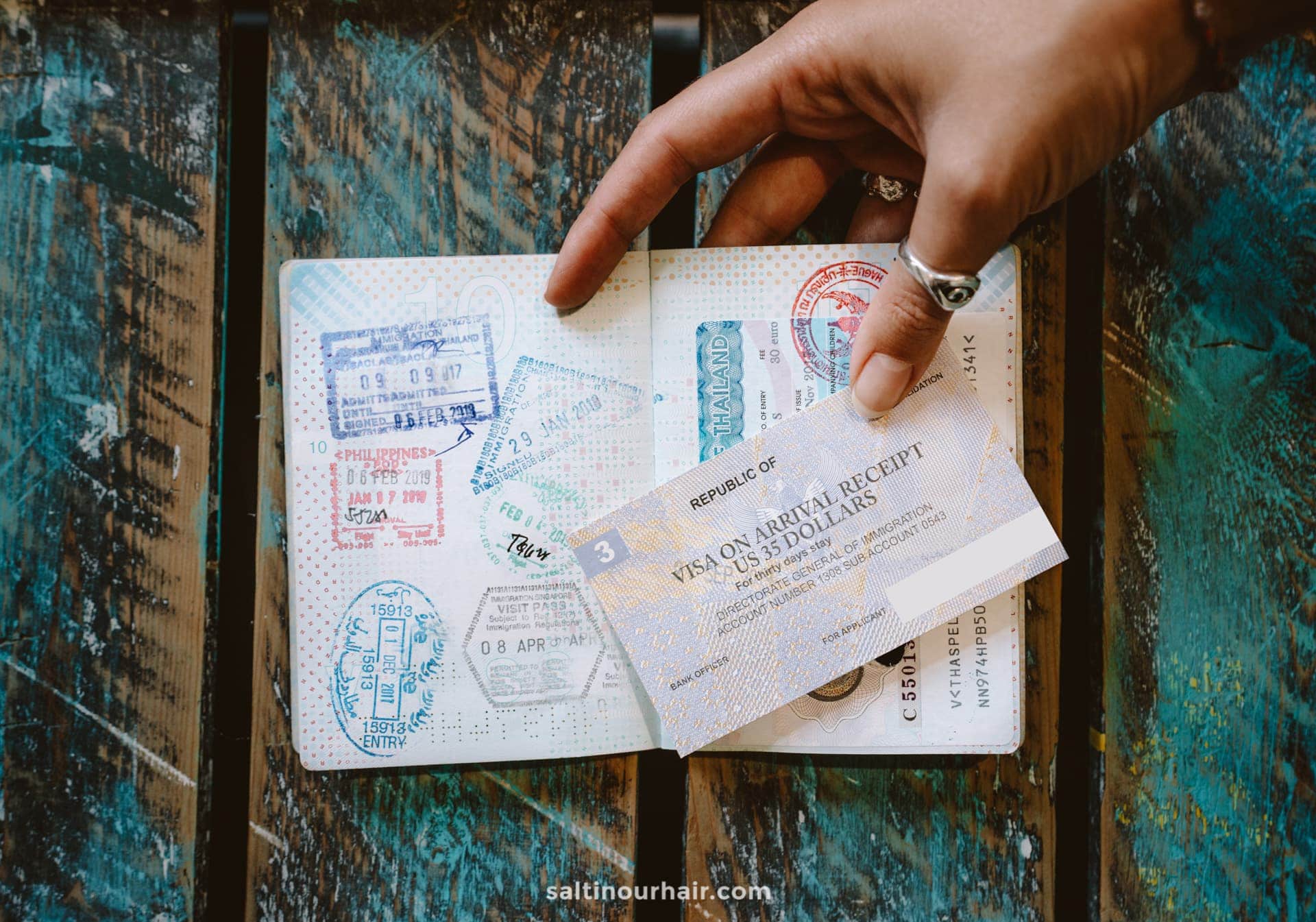
Embarking on a trip to Vietnam from Belgium opens up a world of vibrant experiences, from exploring the bustling streets of Hanoi to relaxing on the beaches of Da Nang. For Belgian citizens, obtaining a Vietnam visa is a crucial preliminary step that involves understanding the specific requirements and processes tailored to your nationality. This section delves into the essentials of visa acquisition, highlighting how globalization and digital advancements have simplified procedures like e-visas, making it easier than ever to travel internationally. With Belgium’s strong diplomatic ties and Vietnam’s welcoming visa policies, applicants from Belgium often find the process efficient, provided they adhere to guidelines and prepare adequately.
Before diving into the details, it’s worth noting that the visa application process not only involves administrative tasks but also an opportunity to reflect on your travel intentions. This introductory overview sets the stage for a deeper exploration, ensuring you’re well-equipped for the journey ahead.
The Evolution of Visa Applications for Belgian Travelers
Over the past decade, the landscape of international travel has transformed significantly, particularly for Belgian citizens looking to visit Vietnam. Initially, visa processes were cumbersome, requiring in-person visits to embassies and lengthy paperwork. However, with the introduction of e-visas in 2017, the procedure has become more streamlined, allowing applicants to submit details online from the comfort of their homes in Brussels or Antwerp. This shift has reduced processing times and minimized errors, making it an attractive option for busy professionals or families planning vacations.
The evolution doesn’t stop at technology; it extends to bilateral agreements between Belgium and Vietnam. As EU members, Belgian passport holders benefit from reciprocal visa arrangements that prioritize efficiency and security. For instance, the Vietnamese government’s online portal is user-friendly and available in multiple languages, including English, which aids non-native speakers. This modernization reflects a broader trend in global tourism, where countries like Vietnam aim to boost visitor numbers by simplifying entry requirements.
Moreover, understanding how to apply Vietnam visa from Belgium involves appreciating the cultural context. Vietnam values its tourism industry, which contributes significantly to its economy, and thus offers various visa categories to suit different traveler needs. This historical perspective underscores the importance of preparation, as it can turn a potentially stressful process into a seamless one. By staying informed about updates from official sources, Belgian applicants can avoid common pitfalls and focus on the excitement of their upcoming adventure.
Key Benefits for Belgian Citizens in the Visa Process
One of the primary advantages for Belgian applicants is the relatively straightforward eligibility criteria for a Vietnam visa. Belgian passports are among the most powerful globally, granting visa-free access to many countries, and for Vietnam, this translates to accessible e-visa options for tourism or business. The process is designed to be inclusive, with no major restrictions based on age or occupation, as long as standard requirements are met. This accessibility encourages more Belgians to explore Southeast Asia’s hidden gems.
Beyond eligibility, the financial aspect is another benefit. Visa fees are competitively priced, and the e-visa system often includes secure online payment options that accept euros, making transactions hassle-free for Belgian residents. Additionally, the Vietnamese authorities provide clear guidelines on their website, which helps in budgeting for the trip. This transparency is particularly appealing to cost-conscious travelers from Belgium, where financial planning is a cultural norm.
However, with these benefits come responsibilities, such as ensuring all documents are up-to-date and accurate. For Belgian citizens, this means verifying passport validity and understanding any potential extensions or multiple-entry options. Overall, the visa process serves as a gateway to cultural exchange, fostering stronger ties between Belgium and Vietnam.
Common Challenges and How to Overcome Them
While the visa application process is user-friendly, Belgian applicants sometimes encounter challenges, such as technical glitches on the online portal or delays due to high application volumes. These issues can be mitigated by applying well in advance of your travel date, ideally a month or more, to account for any unforeseen complications. Another common hurdle is ensuring that photographs and documents meet exact specifications, which might differ from EU standards.
To overcome these, leverage resources like the Vietnamese Embassy’s website or dedicated support lines. Many Belgian travelers find it helpful to use visa application services that offer assistance for a small fee, ensuring compliance with all requirements. Additionally, joining online forums or communities of fellow Belgian expats can provide real-time advice and tips, turning potential obstacles into learning opportunities.
In essence, approaching the process with patience and thoroughness is key. By addressing challenges proactively, applicants can enjoy a stress-free experience, setting a positive tone for their Vietnamese escapade.
Preparing Mentally and Logistically for Your Application
The mental preparation for applying for a Vietnam visa from Belgium involves understanding that it’s not just about paperwork—it’s about readiness for international travel. Start by researching Vietnam’s current entry protocols, especially in light of global events like pandemics, which might impose additional health declarations or insurance requirements. Logistically, gather all necessary information early to avoid last-minute rushes.
For Belgian citizens, this means coordinating with local authorities if needed, such as confirming your passport’s validity through Belgian federal services. Creating a checklist can streamline the process, ensuring that every step, from filling out forms to paying fees, is handled methodically. This preparation not only secures your visa but also enhances your overall travel experience.
Vietnam Visa Options for Belgian Citizens
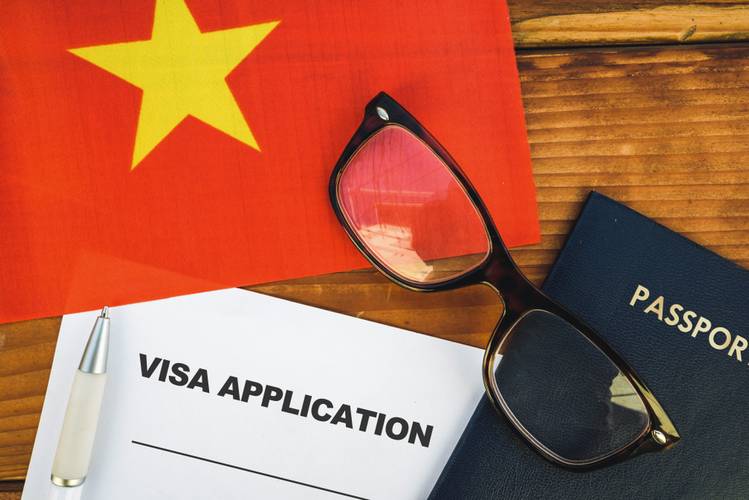
When planning a trip to Vietnam, Belgian citizens have several visa pathways to choose from, each tailored to different travel purposes like tourism, business, or extended stays. This flexibility ensures that whether you’re a solo adventurer or a corporate executive, there’s an option that fits your needs. Understanding these choices is vital for a successful application, as selecting the right visa type can prevent delays and enhance your travel experience in Vietnam’s diverse landscapes.
This section explores the various visa categories available, providing insights into their suitability for Belgian applicants and how they align with common travel scenarios.
Tourist Visas: Ideal for Leisure and Exploration
Tourist visas are among the most popular choices for Belgian citizens eager to experience Vietnam’s cultural heritage. These visas typically allow stays of up to 30 days and are perfect for sightseeing in places like Ha Long Bay or the ancient town of Hoi An. The application process is straightforward, especially through the e-visa system, where you can specify your travel itinerary to justify the visa type.
One key aspect is that tourist visas do not permit employment or long-term residency, so they’re best for short visits. For Belgian applicants, this means planning trips that focus on relaxation and discovery, with options for single or multiple entries depending on your plans. Many travelers appreciate the ease of extending a tourist visa once in Vietnam, though it’s advisable to check current regulations to avoid overstaying.
Moreover, the e-visa for tourism is cost-effective and quick, often processed within a few days. This efficiency allows Belgian families or groups to coordinate their vacations without significant disruptions, making it a go-to option for first-time visitors.
Business Visas: For Professional Engagements
Business visas cater to Belgian professionals engaging in meetings, conferences, or investments in Vietnam. Unlike tourist visas, these allow for activities related to commerce, such as attending trade shows in Ho Chi Minh City. For applicants from Belgium, where international business is a cornerstone of the economy, this visa type facilitates networking and partnerships.
The application requires additional documentation, like invitation letters from Vietnamese companies, which underscores the need for thorough preparation. Belgian citizens often benefit from their country’s strong trade relations with Vietnam, potentially speeding up approvals. However, it’s essential to differentiate between business and work visas, as the former does not authorize paid employment.
In practice, securing a business visa can open doors to lucrative opportunities, but it demands attention to detail in submissions. This ensures that your professional trip runs smoothly, allowing you to focus on building connections rather than visa issues.
E-Visas: The Digital Solution for Modern Travelers
The e-visa option has revolutionized how to apply Vietnam visa from Belgium, offering a fully online process for short-term stays. Available for tourism, business, or family visits, it’s particularly appealing to tech-savvy Belgian applicants who prefer digital efficiency. The e-visa typically grants a 30-day stay and can be applied for directly via the official Vietnamese immigration website.
What sets e-visas apart is their speed; approvals often come within 3-5 working days, making them ideal for last-minute planners. For Belgian citizens, this means less paperwork and more time enjoying Vietnam’s culinary delights or historical sites. However, ensure your passport meets the validity requirements and that you have a clear plan for entry and exit points.
Despite its advantages, e-visas have limitations, such as non-extendable periods in some cases, so careful planning is key. Overall, this option embodies the modern evolution of visa applications, blending convenience with security.
Visa on Arrival: A Flexible Alternative
For those flying directly to Vietnam, the visa on arrival scheme provides a convenient alternative, though it’s less common for Belgian citizens starting from Europe. This method requires pre-approval through an online application, after which you receive the visa upon landing at major airports like Hanoi or Ho Chi Minh City. It’s suitable for urgent trips or group travels.
While straightforward, this option involves carrying physical documents and fees, which might be a drawback for some. Belgian applicants should weigh this against the e-visa for a more seamless experience, especially if transiting through other countries. Nonetheless, it remains a viable choice for spontaneous adventurers.
Step-by-Step Guide: Applying for a Vietnam E-Visa from Belgium
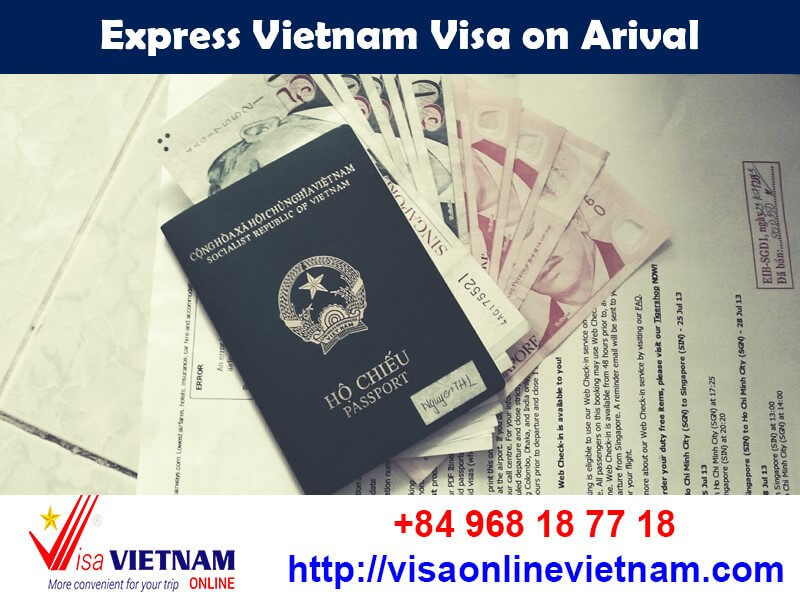
Applying for a Vietnam e-visa from Belgium is a user-friendly process that leverages digital tools to simplify international travel. This method is especially popular among Belgian citizens due to its efficiency and minimal in-person requirements. By following a structured approach, you can navigate the application with ease, ensuring your visa is approved without hitches.
In this guide, we break down the process into actionable steps, providing tips to help you avoid common errors.
Gathering Necessary Information and Prerequisites
Before starting your application, it’s crucial to collect all relevant details to ensure accuracy. Begin by verifying yourpassport validity. Your passport should be valid for at least six months beyond your intended date of arrival in Vietnam. Additionally, ensure it has at least two blank pages to accommodate entry and exit stamps.
Next, familiarize yourself with the specific requirements for Belgian citizens applying for the e-visa. You will need to provide details such as your full name, nationality, passport number, date of birth, and the intended entry and exit points in Vietnam. Having a clearly defined travel itinerary can help you fill out this information accurately, as well as demonstrate the purpose of your visit.
You will also need a digital passport-sized photo and a copy of your passport’s information page. Ensure that your photo meets the Vietnamese visa specifications to avoid rejection. Shortcomings in your application can lead to delays, or worse, denials, so attention to detail is crucial.
Completing the Online Application Form
With all your information at hand, you can proceed to fill out the online e-visa application form. This form is typically straightforward, requiring entry of your personal details, including passport information, and travel itinerary. Be honest and thorough; discrepancies can raise red flags for immigration authorities.
For Belgian applicants, the application portal requires you to select the visa type, which, in most cases, is the tourist visa for leisure travel. Pay particular attention to the entry and exit dates – providing the correct dates is vital since e-visas have strict validity periods.
Don’t overlook the section asking about your intended activities in Vietnam, which could include tourism, family visits, or business meetings. Providing a clear purpose can help enhance your application’s approval chances. Once you’ve completed the form, review it meticulously before submission to ensure everything is correct.
Making the Payment
After filling out your application form, you’ll need to pay the associated e-visa fee. This payment is typically made via credit or debit card, ensuring you have access to your payment method when applying. The fee may vary depending on the type of visa and processing speed you choose, but it generally falls within a reasonable range for most travelers.
Before finalizing the transaction, confirm that you’re using a secure payment channel. Keep all transaction receipts as proof of payment, as you may need to reference them later in the process.
Once your payment is successful, you’ll receive a confirmation email, which may take a few minutes to arrive. This email is vital, as it contains information regarding your application status, which you can track online. Always check your spam folder if you don’t see it in your inbox.
Downloading and Printing Your E-Visa
Approval times for e-visas can vary, but Generally, applicants can expect to receive their visa within 3-5 business days after submission. Once approved, you will receive a notification by email, directing you to download your e-visa.
Upon downloading, carefully review your e-visa to confirm all details are correct, including your name, passport number, and validity dates. Any discrepancies should be addressed immediately to avoid issues upon arrival in Vietnam.
It’s advisable to print out a hard copy of your e-visa, alongside your passport, as the immigration officers at the entry point in Vietnam will request to see both documents. Keeping a copy of your e-visa on your smartphone can also be useful, but having a physical copy ensures you’ll be prepared for any unforeseen circumstances.
Application Through the Vietnamese Embassy in Belgium
For those Belgian citizens who prefer a personal touch or have unique needs that an e-visa cannot accommodate, applying through the Vietnamese embassy in Belgium is a viable option. This method offers direct communication channels, allowing applicants to clarify doubts and receive tailored advice on visa categories.
The embassy serves as an official representative of Vietnam in Belgium and can help streamline the process for you. Both traditional tourist and business visa applications can be submitted through the embassy, depending on your travel needs.
Finding the Vietnamese Embassy in Belgium
The first step to apply through the embassy is to find the proper location. The Vietnamese Embassy is situated in Brussels, Belgium’s capital. It’s advisable to visit their official website for updated information concerning embassy hours, contact details, and the necessary forms required for your application.
Many people prefer visiting embassies in person for sensitive processes such as visa applications, as they can provide the comfort of direct interaction. Being in a position to ask questions and obtain immediate feedback can eliminate uncertainties, often enhancing applicants’ confidence in proceeding with their travels.
Don’t forget to check if you need an appointment before visiting to save time and ensure a smooth experience as some embassies require prior scheduling.
Preparing for Your Visit to the Embassy
Before heading to the embassy, gather all required documents, including your passport, photographs, and any supporting documents specific to your visa type. Preparing these ahead of time can help avoid unnecessary delays.
In addition to personal documents, ensure you have the appropriate forms filled out. You can often find downloadable forms on the embassy’s website, which is a convenient way to avoid filling them out on-site.
On your visit, also be prepared to articulate the purpose of your visit succinctly. Clear and concise explanations of your travel plans can ease concerns any officer may have regarding your intentions in Vietnam.
Understanding Processing Times and Fees
Processing times for visas obtained through the embassy may be longer than the e-visa route, depending on your specific circumstances and the embassy’s workload. Generally, expect processing times to take anywhere from 5 to 10 business days, and always plan your application as far in advance as possible.
Fees for embassy applications can also vary based on visa type and length of stay. Always check with the embassy staff for the most current fee structure to avoid surprises. Additionally, some embassies may require payment in cash or a specific payment method, so asking beforehand can help you prepare accordingly.
Required Documents and Fees for Visa Application
Regardless of whether you apply for an e-visa or through the embassy, understanding the required documents and fees is critical to ensuring a seamless application process. Each visa category has slightly different requirements, but there are basic documents needed that applicability for all Belgian citizens.
A thorough understanding of these requirements will not only pave the way for a successful application but will also prepare you for your arrival in Vietnam.
Essential Documents for Your Visa Application
For both e-visas and embassy applications, the essential documents typically include:
- A completed application form
- A valid passport with at least 6 months’ validity
- Digital passport-sized photos
- Any required supporting documents that relate to your travel purpose
Belgian citizens are often well-prepared but ensuring each document adheres to the Vietnamese regulations is crucial. For instance, digital photo formats may vary, so checking specifications related to size and background color can prevent unnecessary delays.
Visa Application Fees and Payment Methods
The cost of a Vietnam visa differs based on the application method, type, and duration of stay. E-visas usually have set fees that can be confirmed on the official Vietnamese immigration website. Remember to factor any additional banking or transaction fees that your credit card company may charge.
For applications through the embassy, fees may also vary, and many embassies prompt cash payments for visa services. Therefore, being prepared with the correct payment form can be a crucial step to avoid delays.
Additional Costs to Consider
While primary fees cover visa processing, there are likely additional costs to consider when planning your trip to Vietnam. These could include:
- Travel insurance
- Accommodation booking fees
- Transportation costs
Understanding these added expenses can help create a more comprehensive travel budget. Also, communicating with travel agencies can sometimes yield packaged deals that cover hotels and entry fees together.
Processing Times and Important Considerations for Belgian Applicants
Visa processing times are an essential factor for Belgian citizens when planning their travels to Vietnam. Being aware of expected durations helps in scheduling and ensures that you select the ideal visa type for your needs.
The timing of your application affects not only the approval but also your travel plans, making it crucial to be organized early in your arrangements.
Expected Processing Times for Different Visa Types
- E-Visa Processing: For e-visas, Belgian applicants can generally expect approvals within 3 to 5 business days after submission. However, during peak travel periods, processing may take slightly longer due to increased demand.
- Embassy Applications: When applying through the embassy, processing may take anywhere from 5 to 10 business days, contingent on workload and the specifics of your application.
When scheduling your trip, always allow a buffer time before your planned departure date to account for potential delays.
Important Considerations for Application Submission
For Belgian citizens, one crucial tip is to avoid last-minute applications. Any oversight in the application process could lead to extended delays or even denials, so it’s wise to set a timeline that allows for extra days.
Additionally, understanding peak travel times, such as summer vacations or public holidays, is essential. Applications submitted during busy seasons may take longer to process than expected.
Ensuring Your Visa is Valid Upon Arrival
Upon receiving your visa, always double-check that everything is in order. Your name should match your passport precisely, as discrepancies can cause issues at immigration. If any mistakes are found, it’s best to address them before your trip, whether through reapplication or correction.
Planning ahead can greatly help mitigate any potential stress or complications related to obtaining your Vietnam visa from Belgium.
Conclusion
Obtaining a Vietnam visa as a Belgian citizen involves a multi-faceted approach, ensuring that applicants are well-informed about various visa options, application procedures, and necessary documentation. By understanding the intricacies of each visa type, Belgian travelers can choose paths that best align with their intentions, be it tourism, business, or family engagement.
Whether opting for the convenience of an e-visa or benefiting from the personalized assistance of the Vietnamese embassy, thorough preparation paves the way for a smoother travel experience. Always keep in mind processing times, costs, and necessary requirements to secure a visa that allows you to immerse yourself in the vibrant culture and stunning landscapes of Vietnam.
With the right documentation and careful planning, your trip to Vietnam can be not only memorable but seamlessly comprehensive, enabling you to enjoy each moment without undue worry related to travel authorizations.


